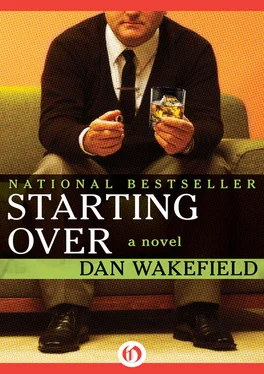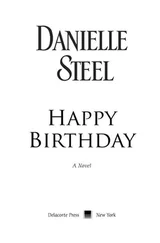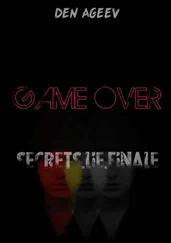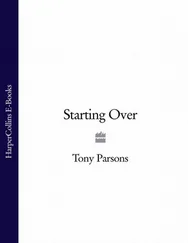As Gafferty spoke enthusiastically of his teaching, Potter began to feel an excitement and apprehension about his own, about his upcoming classes, thinking if he was going to do it he damn well might as well do it right. He would read some more, prepare some more; he would give it his best, whatever that now was worth.
Potter felt he had prepared himself well for the first meeting of his seminar in Public Relations. He had thoroughly read and underlined Theory and Practice of Public Relations by Castorp and Billingsgate, which after considerable deliberation he had chosen as the principal text for the course. Furthermore, he had scoured the recent issues of the Public Relations Journal , a periodical of the PR trade, or, as the editors would probably prefer it, the profession. While actually working in the field his attention to that publication had been small, limited usually to occasions when he had nothing else to take with him to the bathroom for scanning while sitting on the pot. But now he felt it was part of his responsibility as a teacher to keep up with what was going on in his subject, have all the up-to-the-minute stuff at his command.
He read with careful interest an article on “Public Relations in the Classroom,” which said that in most courses theory was being stressed over practice, and quoted Hunter P. McCarthy, head of the Public Relations “sequence” at West Virginia University, who felt that PR courses were being “absorbed into a more psychological-communicological approach.” Hunter P. McCarthy said further that “As man’s senses extend, the chief business of our society will be catering to those extended senses, and public relations practitioners should be in the vanguard of service to man’s extension.” After reading that declaration several times Potter was still not sure what exactly it meant, but it certainly gave him a heady feeling, knowing he was in the vanguard of something, however elusive. He was amused and reassured by an article on “PR People in Retirement,” which reported that “In-depth study finds them happy, involved, useful, and well-adjusted to a new way of life.” As one now allied with the business, if only as a teacher, Potter could surely look ahead to a contented time of pasturing in his declining years.
Potter alluded to the article in his introductory remarks to the seminar, one of several notes of wry humor that he struck, hoping to set the tone in a breezy, informal way; and hoping also to win the hearts of each and every student. He was surprised at how important it seemed to him to be loved by his classes; his performance, casual as he hoped it appeared, was as studied and consciously timed as if he were on the stage, facing a first-night audience in the starring role of his career.
Potter ended his spiel, lit a cigarette, and looked around the table for questions, confident he was prepared to field any and all. But the first one asked was the one he had not expected, was not in his notes or research or calculations, and he had not prepared any smooth way to handle it. It came zinging in from left field, though Potter was sure it had not been intended that way by the questioner, a clean-cut studious young man. Mr. Stevenson. Foster B. Stevenson.
“Sir,” Mr. Stevenson asked, “you mentioned something of your own experience in the public relations field in New York City. Could you tell us, please, how it happened you decided to enter the field?”
Potter could feel his cheeks growing warm. The faces of the fifteen students seated around the long mahogany table turned toward him, interested, attentive, expectant. Potter coughed. It sounded like a sudden explosion in the silence of the room. He began to speak, knowing he had to, groping awkwardly, hearing disjointed phrases come out, like “Well—you see—at that time—uh, I was—but first I should explain—”
His groping for the manner in which to most suitably answer the question did not mean at all that he had forgotten it, or that it was the slightest bit unclear in his own mind, for as soon as the question was asked he saw with perfect clarity the actual time and place when he decided to go into public relations; it was one of those scenes that were indelibly retained in his memory because it marked so definite an end to one part of his life and the beginning of another, a demarcation as definitive as a wedding or funeral, a divorce or a graduation.
Potter was standing in the middle of a room that tinkled with cocktail glasses and conversation. It was after he’d been kicked out by Tandy and had been living on a fold-out bed at the apartment of a guy from his old acting class, and waiting tables at Allen’s on the Upper East Side. Several friends stood amiably about, none of them noticing that the usually gregarious Potter had fallen silent for an untypical period of time, and that when he finally spoke, his comment did not seem related to the chit-chat around him.
“I’m hungry,” he said.
The three or four people standing by him stopped their own conversation and looked at Potter with curiosity.
“Why, Phil,” one girl said helpfully, “there’s a whole ham and turkey right over there on the table. Would you like me to fix up a plate or a sandwich for you?”
He shook his head, his expression fixed in a sort of trance. “That isn’t what I mean,” he said.
“Well—uh—what is it—you’re hungry for?” the girl asked, warily now. “Steak or something?”
“No,” he said, still evidently staring at something beyond or above the people who were now so attentively watching him; whatever he saw was beyond the party, the room, the evening.
“We could fall over to Thompson Street and get some Italian food, if that’s what you want,” his roomie Al Solonkis said.
“That isn’t what I want.”
“Well for the love of Jesus, will you tell us what in the name of God you want?” Al burst out.
Potter suddenly smiled, as if the trance was broken, and looked at his friends as if they should have understood all along what he meant that he was hungry for now, what he really wanted for the first time in his life.
“Money,” he said.
Once it happened it seemed only natural—all too natural, Potter thought—that he was just right for public relations. Going with Olney and Sheperdson, who handled a lot of theatrical clients, made it seem even more natural, an extension of his former interest. Shouldn’t he have known it all along?
He had feared it all along.
But that was not the sort of thing to tell the young people gathered in his brand new seminar; it did not convey the sort of image he wished to create for either himself or the subject. Whatever hostility or disrespect or condescension he felt about the field, he figured in part, at least, was due to the fact that it was not what he started out wanting to do at all, but a very distant second choice, not even in a sense a choice at all, but a seemingly inevitable solution, a half-baked bargain with a charming sort of devil. But if students were attracted to the sort of work and life that public relations offered, he saw nothing shameful about it, did not wish to discourage them, and hoped in fact to give them as much advice and good counsel, intellectual stimulation and accompanying entertainment as he possibly could.
After his initial fumbling with the question, he spoke of the “challenge” of the field, tried honestly to take into account the financial attraction it had for him after years of playing the starving artist, how it was in fact related to his old love, the theatre, not merely, in the case of his own firm, in gross press-agentry for stars, but in the planning of long campaigns for top-notch serious Broadway productions, promotion of meaningful cultural events, fund-raising for a topflight symphony—oh, a rich variety of noble works and deeds. But as he spoke of these things his mind was far away, thinking of how he was able to continue the job as long as he did, after the novelty of new work and a good income had worn off, how he was able to not only keep plugging away but to strive for even greater rewards—and the explanation of that was even more inappropriate for the young ears of the students in his opening seminar, for the answer was inextricably tied to his affair and eventual marriage with Jessica.
Читать дальше












